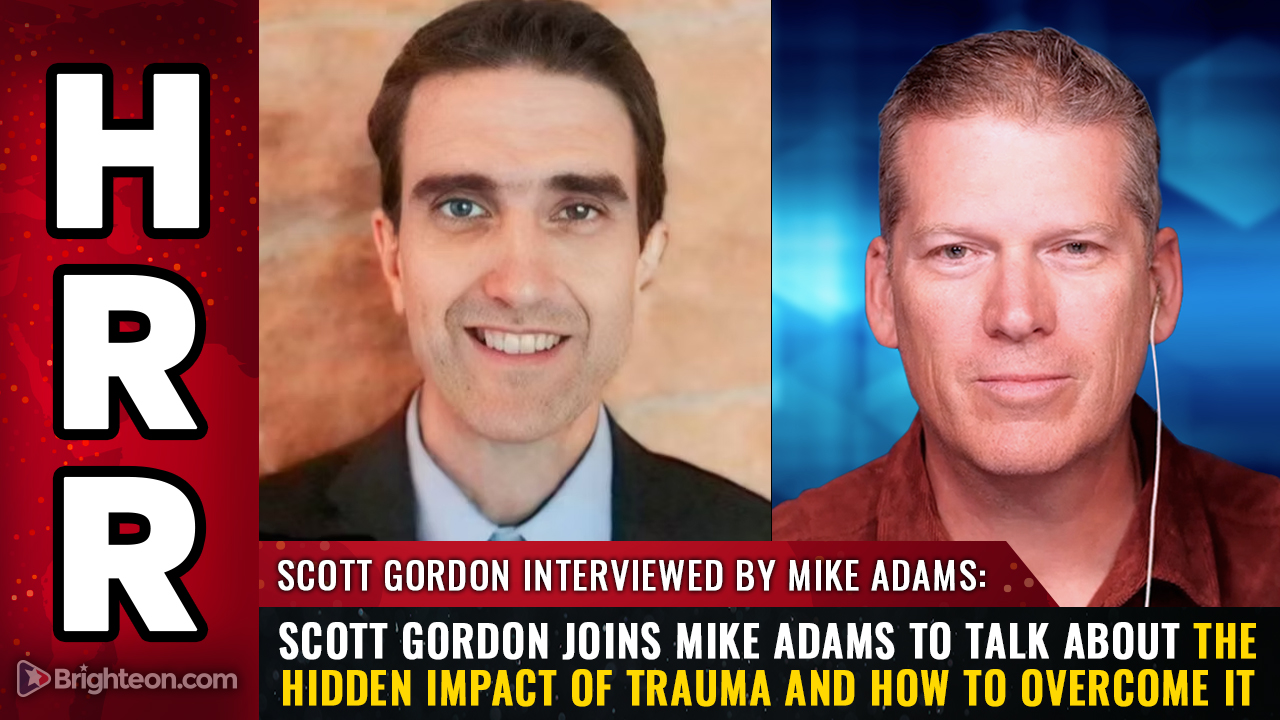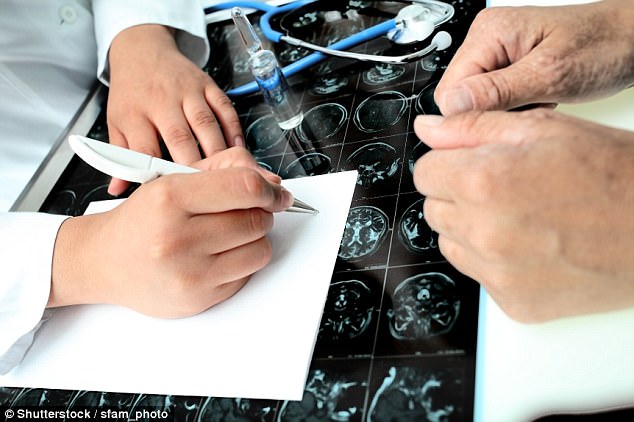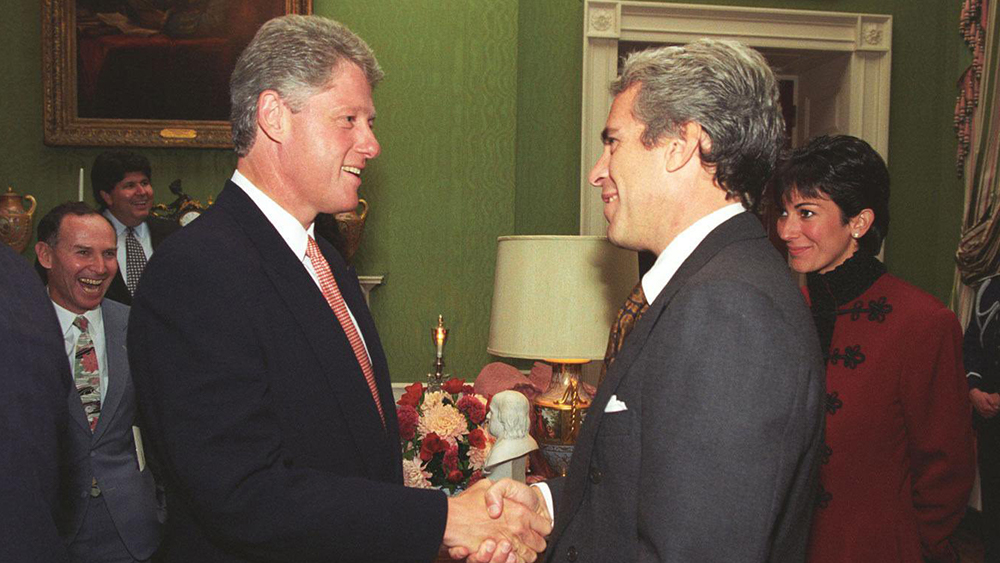 Parler
Parler Gab
Gab
- Unresolved trauma can manifest as severe physical conditions, including tumors, and disrupt the body’s balance, emphasizing the need for holistic healing approaches.
- Emotional and psychological distress from trauma can trigger defense mechanisms, leading to chronic health issues and requiring deep inner work for resolution.
- Nutrition’s role in health is overshadowed by trauma; addressing underlying emotional causes through therapy, counseling, and holistic healing is crucial.
- Trauma’s societal impacts include stress, political polarization, and historical control mechanisms; healing individuals contributes to a healthier society.
- Self-awareness and inner work are essential for trauma recovery, with healing being a gradual process requiring patience, self-compassion, and confronting truths.
Trauma's Hidden Impact on Health
Scott Gordon explained that trauma, whether experienced in childhood, adulthood, or even infancy, can have lasting effects on both mental and physical health. Stress and emotional distress, he noted, can trigger the body's defensive mechanisms, which, over time, may lead to chronic health issues. "The body doesn't distinguish between emotional and physical pain," Gordon said. "Unresolved trauma can create a cascade of physiological responses that disrupt the body's natural balance." He provided examples of clients who experienced dramatic improvements in their health after addressing deeply buried traumas. One client, who had suffered from severe health issues tied to satanic ritual abuse, saw significant improvements in her well-being after unpacking these traumas. Gordon stressed that trauma is not merely a psychological issue but a deeply rooted energetic force that can disrupt the body's equilibrium.The Role of Nutrition and Holistic Healing
While nutrition plays a critical role in overall health, Gordon emphasized that it is often overshadowed by the effects of unresolved trauma. "The interaction between stress, trauma, and nutrition is complex," he said. "People often focus on physical symptoms without addressing the underlying emotional or psychological causes of their health issues." Gordon advocates for a holistic approach to healing, which includes addressing trauma through therapy, counseling, and inner work. He described his philosophy-based counseling as a way to empower individuals to take control of their healing journey, rather than relying solely on external authorities or conventional medical treatments.The Broader Societal Context
The conversation also touched on the broader societal factors that contribute to trauma. Gordon highlighted how modern society, with its constant stress and increasing political polarization, exacerbates existing trauma. "Trauma stacks up, and the more it stacks up, the more it affects our lives and health," he said. He also discussed how institutions, including governments and corporations, have historically used trauma-based mechanisms to control populations, citing examples like MK Ultra and mind-control programs. Gordon emphasized the importance of raising awareness about these issues and equipping individuals with tools to heal from trauma. "Inner work and trauma therapy are not just about individuals," he explained. "They are about creating a healthier, more resilient society."The Importance of Self-Awareness and Inner Work
Gordon stressed that self-awareness and inner work are essential for overcoming trauma. He encouraged individuals to seek therapy or counseling to uncover and address deep-seated traumas, which often lie beyond conscious awareness. He also noted that healing is a gradual process, and individuals should not rush their journey or compare themselves to others. "Healing from trauma is not a linear process," he said. "It requires patience, self-compassion, and a willingness to confront uncomfortable truths. The goal is not to eliminate all pain but to achieve a state of balance and peace."Conclusion
Scott Gordon's work challenges conventional approaches to health and wellness by emphasizing the interconnection between emotional well-being, physical health, and societal factors. By addressing trauma holistically, individuals can unlock their full potential for healing and live more fulfilling lives. As Gordon noted, "We are spiritual beings with the power to heal ourselves, but it requires courage, awareness, and a willingness to face our past." Through his work, Gordon hopes to inspire a cultural shift toward integrating trauma therapy and holistic healing into mainstream health practices. His insights remind us that true health is not merely the absence of illness but the presence of well-being, clarity, and peace. Watch the full episode of the "Health Ranger Report" with Mike Adams, the Health Ranger, and Scott Gordon as they talk about the hidden impact of trauma and how to overcome it. This video is from the Health Ranger Report channel on Brighteon.com.More related stories:
Psychotherapist exposes how the mental health system fails patients and practitioners alike Exploring DMSO’s potential in addressing mental health issues and neurological injuries Popular hair loss drug linked to suicidal thoughts, sparking FDA and EU warnings Sources include: Brighteon.com Healthrevealed.orgEU digital identity wallet sparks privacy concerns amid rollout
By Laura Harris // Share
FDA limits COVID-19 vaccine approvals to elderly and high-risk groups, but millions still eligible
By Laura Harris // Share
California expands digital ID initiatives with new pilots and partnerships
By Laura Harris // Share
FDA approves first blood test for Alzheimer’s disease detection
By Ava Grace // Share
Crab: The ocean’s nutrient-dense superfood with centuries of health benefits
By Ava Grace // Share
“We had lunch in Israel once”: New questions swirl over Epstein’s intelligence links
By Willow Tohi // Share
Governments continue to obscure COVID-19 vaccine data amid rising concerns over excess deaths
By patricklewis // Share
Tech giant Microsoft backs EXTINCTION with its support of carbon capture programs
By ramontomeydw // Share
Germany to resume arms exports to Israel despite repeated ceasefire violations
By isabelle // Share









